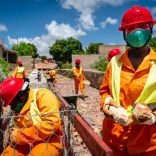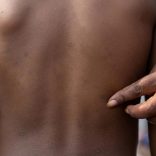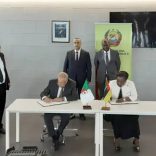MSF: Violence in Cabo Delgado sparks new wave of mass displacement as needs surge
Mozambique: Cabo Delgado situation calls for multiple aid campaigns – Mia Couto

File photo: Lusa
The humanitarian situation in Cabo Delgado, in northern Mozambique, calls for multiple aid campaigns, such is the dimension of the crisis, award-winning writer Mia Couto has said in an interview with Lusa to raise the profile of the fund-raising initiative Por Moçambique (For Mozambique).
“Several campaigns are needed, inside and outside Mozambique,” he said. “Unfortunately the situation is reaching an enormous dramatic proportion.”
Mozambique’s most celebrated writer described the situation in Cabo Delgado as one of “barbarity and cruelty” in which terrorists have been attacking some of the world’s poorest people since 2017.
“A country in the condition that Mozambique is in cannot cope with the size of that drama” on its own, he stressed.
The campaign, which is accessible online at www.pormacambique.pt, aims to raise funds directly for Caritas, the United Nations Children’s Fund (UNICEF) and Oikos, which all have teams on the ground working on the humanitarian response in Cabo Delgado.
The aim, Couto stressed, is to alleviate the suffering of the people suffering from the effects of terrorism, a global phenomenon that no country has yet managed to overcome, making it “very difficult to turn this page”.
For his part, the writer wants to record victims’ stories in order to give them humanity and to make them more than numbers.
“For me it is fundamental that our attitude towards solidarity campaigns should be based on names, on faces, on concrete stories,” he said.
Couto drew a parallel with Europe: if a terrorist act targeted people in Paris, “the next day the newspapers would have the story of each one of them and their families.”
In the case of Cabo Delgado, he lamented, “it seems that these people do not have the right to have their unique history, to have their individuality.”
Collecting testimonies is among the objectives of the Fernando Leite Couto Foundation, set up in 2015 in Maputo in honour of Mia Couto’s late father, also a writer.
“This is one thing we want to do,” he explained. “We want to build those stories, send a team there that can record on video and on paper the concrete stories of families that have suffered.”
In particular, they want to tell “stories of overcoming” the huge challenges faced by people in the region, he said, highlighting “the enormous capacity of people to resist and rebuild their lives after the ashes, after death.”
The sitation in northern Mozambique is so dramatic that it provokes a fear for which the writer, in the interview with Lusa, acknowledges that “I am not prepared”. It is only comparable to the fear he says he felt when he slept in Palma, at a time when people were being devoured by lions.
Couto was working as a biologist 19 years ago in the town, which had recently been attacked by rebels, at a time when there were no paved roads and no giant industrial complexes being built.
“At the time, Palma had no place to stay” and he was sleeping of a tent.
One night, they warned him of the death of a man nearby and, torch in hand – there was no power – he went to see what was going on. They explained to him that the man had been killed by a lion.
“I began to face a fear that was unknown to me,” he said. “I was afraid of having this fear [of] being devoured by a beast.”
From that experience his novel ‘Confession of the Lioness’ was born.
With the dramatic accounts of the recent attack on the town of Palma, he said, “I am revisiting a fear for which I am not prepared” with “that terror that is inspired by the action of … these terrorists in Cabo Delgado, takes me back to that period.”
At the time, he turned the story of lions that caused the death of several people in a village into fiction, but now he says he is “not capable of fictionalising” the situation in Cabo Delgado.
“I missed being in Palma”, he says, because living a drama “at a distance” can be “more painful, because everything comes to us second hand, shrouded in a fog.”
Armed groups have terrorised Cabo Delgado since 2017, with some attacks being claimed by the local affiliate of the Islamic State group, in a wave of violence that has already claimed over 2,500 lives, according to the ACLED conflict registration project, and displaced 714,000 people, according to the government.
The most recent attack was on 24 March on Palma, leaving dozens of people dead and wounded, in a tally that is still ongoing.
Government forces have regained control of the town, but the attack prompted Total, the French multinational, to abandon for an indefinite period the site of the gas complex that was scheduled to start production in 2024 and on which many of Mozambique’s economic growth expectations for the next decade are based.













Leave a Reply
Be the First to Comment!
You must be logged in to post a comment.
You must be logged in to post a comment.